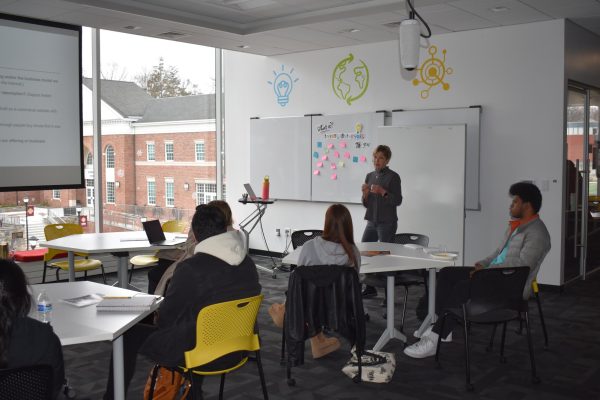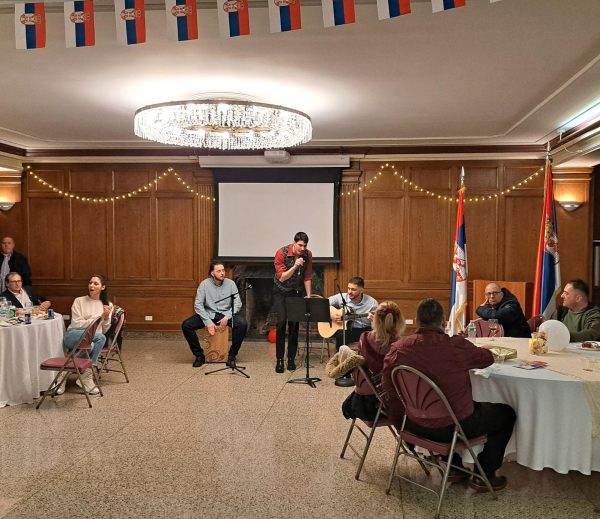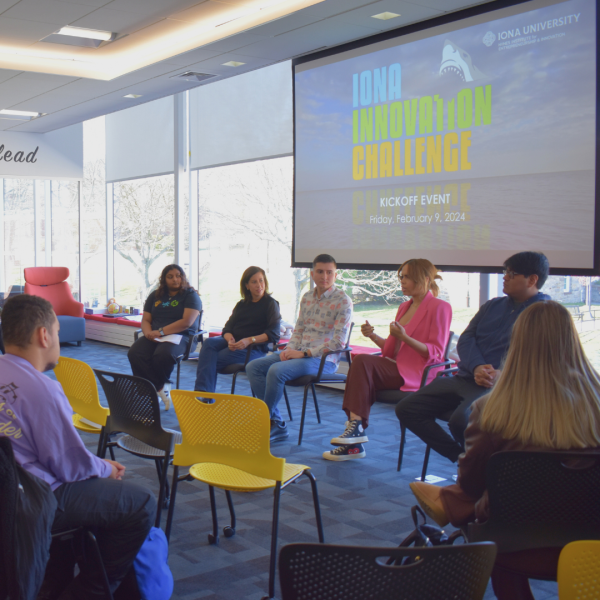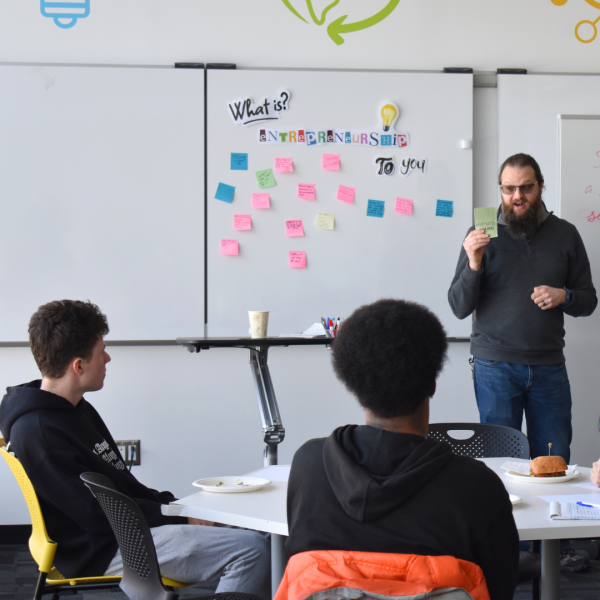Committee discusses core curriculum
May 2, 2018
The Core Curriculum Committee held a town hall meeting on April 27 to discuss the core requirements that were adopted two years ago in order to get a better understanding of how the curriculum has played out since then.
Dr. Elena Procario-Foley, associate professor of Religious Studies and director of the Committee, led the town hall. The other members of the committee included Dr. Abigail Bishop, Dr. Nicoleta Iliescu, Dr. Jeanne Matich-Maroney, Dr. Alison Munsch, Dr. Aaron Rosenfeld, Dr. Joseph Stabile and Dr. Daniel Thiery. The committee members come from both the School of Arts & Science and the School of Business. The committee as a whole reviews the core curriculum and supervises the classes.
The meeting was designed to be an open listening forum. Faculty in attendance raised several issues, including the Integrated Core Themes, the STEM Requirements, the English Comprehension, ePortfolio and the Student Learning Outcomes. Procario-Foley reiterated that this year, the focus has been on Integrated Core Themes.
There are seven types of Integrated Core Themes. The topics are interdisciplinary issues that are meant to connect the focuses of the classes students take. The committee said it thinks that specifying a theme in addition to the student’s major is going to help achieve better Student Learning Outcomes. The classes a student takes through the core involving the ICT should frame their thinking.
“There has been an increase in the number of the core classes available,” Dr. Frances Bailie, said. “Having more core options is beneficial, because it gives students more opportunities to improve in academic areas in which they may be weaker.”
Teachers also discussed the STEM requirements. They said they have been finding that it may not be beneficial for students to have non-science majors taking the general science major classes, like General Physics. Some faculty members said they think that students should fill up their nine required STEM credits with some of the other 29 options available.
Faculty members also brought up the possible need to add another Core Curriculum class for English Composition. Currently all students (except for those in the Honors Program) take either English 120 or the more advanced 122 class, but some people believe that just one class may not be enough to achieve the learning outcomes desired for English literacy.
The committee then asked for feedback on the new ePortfolio system that was put in place last semester. Matich-Maroney and Brian Farkas, assistant manager of Faculty Technology Services worked with the team of developers at EPortfolio to keep the system updated. A faculty member attending the town hall said that she thought the system in place this year has been working great for her students so far. EPortfolio is where students will submit their Core Signature Assignment, which will be used to assess if the new Core Curriculum is achieving its Student Learning Outcomes.
Procario-Foley ended the meeting by explaining the Student Learning Outcomes assignment for the math department. This assignment is still in the process of being updated and developed for next semester.
“The current assignment may not be proven to help with the digital and information literacy to the level we’d like, so we will need more teachers to give feedback as we continue developing this core signature assignment,” she said.
The skills being tested by all of the core signature projects include critical inquiry and analysis, informational and technological literacy, teamwork and collaboration, critical reading, critical thinking and creative problem-solving, oral communication, written communication and quantitative literacy.













